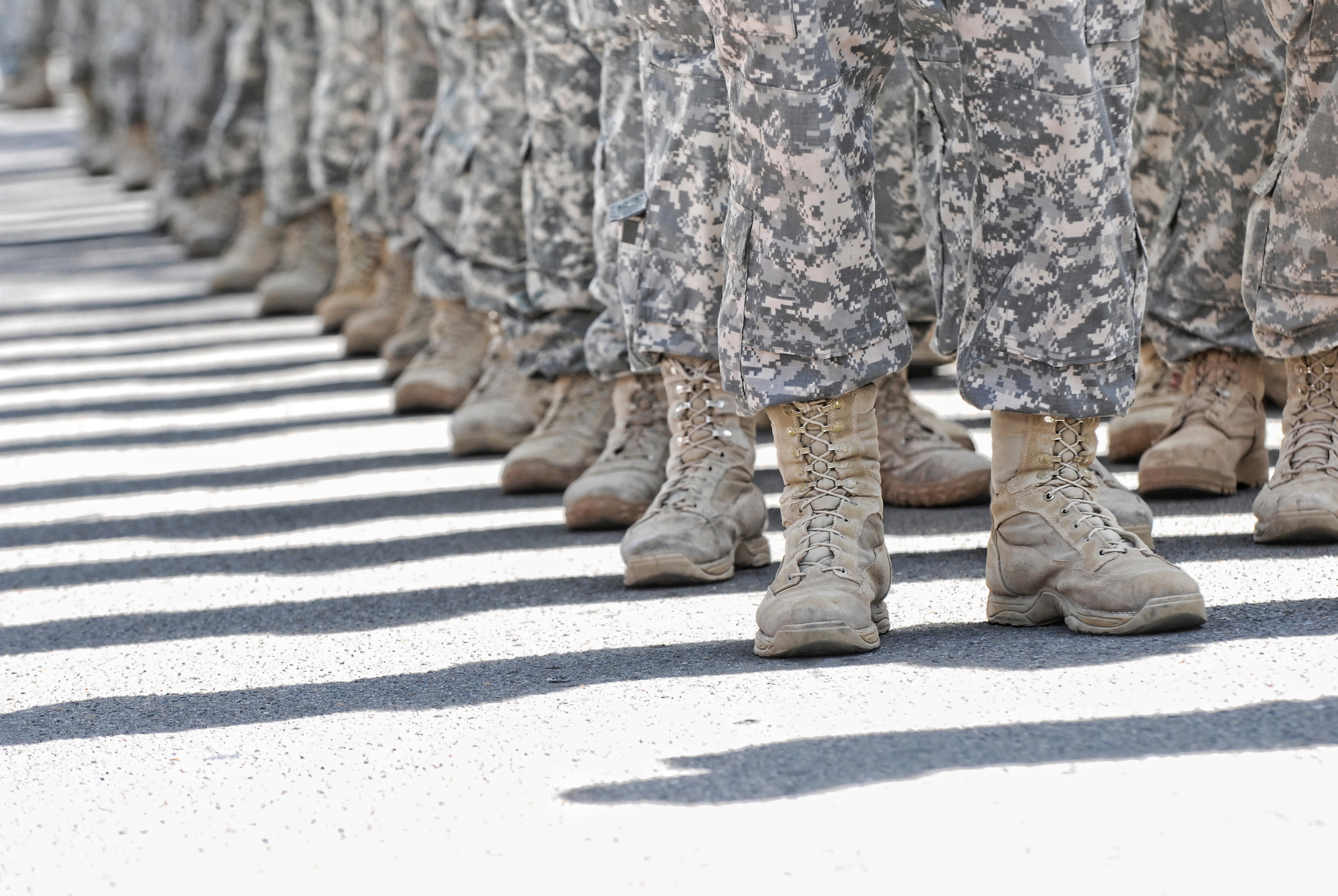
It’s common for a combat veteran with post-traumatic stress disorder (PTSD) to relapse up to five years after combat. It just so happens that I met my husband Kenny during his.
His first hospitalization came only two months after we first met in 2009. He was a corporal in the Marine Corps who served one tour in Iraq in 2003. He had a few noticeable PTSD symptoms but remained fairly social, very sweet and employed full time as an aircraft mechanic at our local Air Force base. But over the course of five years, I watched my best friend’s quality of life decline.
As time went on, he experienced more nightmares and flashbacks. Paranoia and hyper-vigilance became constant companions. Depression, suicidal thoughts and anxiety were now a part of daily life. He attempted suicide twice. His condition had deteriorated so much that it was clear he needed serious help. Taking his recovery into his own hands, Kenny decided to give up drugs, violence, smoking and alcohol in 2014. After doing all of that, I knew it was the right time to marry my best friend and love of my life.
I had no idea that being his wife would by default mean becoming his full-time caregiver. Although I’d known Kenny for years, it was a different experience to witness his symptoms 24 hours a day, seven days a week. Insomnia, flashbacks, hallucinations and delusions were a nightly ritual.
Hardest of all to grapple with is the shame my husband feels about his PTSD. To him, it means that he’s a failure, that he’s weak. He dreads small talk questions like, “What do you do for a living?” or “What do you do for fun?” The last thing in the world he wants to admit is that he’s fully disabled because of his time in the military and can’t work.
In my husband’s experience, PTSD was not something that you’d admit to in service. You didn’t want the other men to know — and you sure didn’t want your superiors to know — that you were struggling. It meant you were “weak,” and there’s no room for weakness on the battlefield. That mentality has followed him throughout his life, and now he considers himself broken and useless.
My husband is the love of my life. He is an incredible, brave person who has always been extremely supportive of all my goals, dreams and even my shenanigans. He unfortunately also has very significant health needs, and he deserves better, just like the 11-20% of Iraq veterans who suffer from PTSD. He should not have to cope alone with the debilitating challenges and the equally-debilitating shame he suffers from being a disabled veteran.
As a caregiver, I want to work to end the stigma around mental health care in the military. Why are service members like my husband afraid to seek help or let anyone know they’re struggling? The shame attached to combat and military-related PTSD makes the condition and recovery worse. It shouldn’t be a sign of weakness to ask for help. It should be a sign of strength. We send them into battle with physical armor, medics, training and weapons in order to protect their bodies. Now the military needs to do more to make sure that these brave men and women come back mentally well too.
Angie Toone is a mother, wife and full time caregiver of Kenneth Toone, Iraq War veteran and subject of the new documentary available nationwide now, Thank You For Your Service — which addresses the mental health crisis in the U.S. Military. Toone is the founder of The American Homemaker and currently serves as the Pinups for Patriots Utah Platoon Leader.
More Must-Reads from TIME
- Donald Trump Is TIME's 2024 Person of the Year
- TIME’s Top 10 Photos of 2024
- Why Gen Z Is Drinking Less
- The Best Movies About Cooking
- Why Is Anxiety Worse at Night?
- A Head-to-Toe Guide to Treating Dry Skin
- Why Street Cats Are Taking Over Urban Neighborhoods
- Column: Jimmy Carter’s Global Legacy Was Moral Clarity
Contact us at letters@time.com